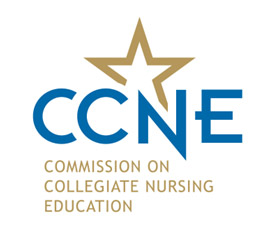THE 2026 COHORT APPLICATION PERIOD:
September 1 – December 31, 2025.
What is SNAPT?
Created by the Johns Hopkins School of Nursing through funding from the Maryland Higher Education Commission and recently fully accredited by the Commission on Collegiate Nursing Education (CCNE), the Supporting Nursing Advanced Practice Transition (SNAPT) Fellowship is an exciting opportunity for talented primary care Nurse Practitioner students from the Johns Hopkins School of Nursing (JHUSON) the University of Maryland School of Nursing (UMSON) and Coppin State University School of Nursing, who are seeking employment in Maryland. All students in the Pediatric, Family, and Adult-Gerontology programs are eligible to apply. The SNAPT Fellowship facilitates a seamless transition for DNP students from academic coursework to graduate professional practice. The Fellowship program was developed to address the needs of NPs transitioning into practice, allowing for an individualized approach to meet competency goals, to increase confidence and resilience, and to promote retention in primary care.
Students accepted to the program will complete their final clinical rotation at a primary care site in Maryland. They will then be hired and begin a 12-month paid fellowship, then transition to a permanent position with the partner organization. Our SNAPT partner institutions include practices across Maryland that serve a variety of patient populations. Many of our partners are Federally Qualified Health Centers (FQHC) which may allow students to apply for loan forgiveness if they qualify through the federal program (application is separate). The SNAPT program staff is dedicated to matching applicants with partner sites based on their areas of interest and career goals. This initiative is supported by funding from Health Resources and Services Administration (HRSA).

Mission Statement
The SNAPT program’s mission is to enhance and further develop the clinical skills, knowledge, and confidence of new Nurse Practitioners (NPs) to meet the challenges of working with complex patients in community practices. Utilizing a competency-based approach, new NPs are prepared to deliver high-quality, compassionate, culturally competent, patient-centered care in the primary care environment. Graduates of the SNAPT fellowship are equipped to become leaders in practice, serve as change agents in their community and assist in training other NPs for the future
SNAPT Team members

Marianne Fingerhood, DNP, ANP-BC, CNE
Dr. Fingerhood has served as an Adult Nurse Practitioner since 1999 and has been a dedicated leader in Nurse Practitioner education since 2001. Her commitment to fostering a supportive transition for new graduates into clinical practice inspired the creation of the SNAPT Fellowship. Through close collaboration with fellows and their practice partners, Dr. Fingerhood cultivates a dynamic learning environment grounded in mentorship, clinical growth, and interprofessional teamwork.

Veronica “Ronnie” Quattrini, DNP, MS, FNP-BC, FAANP
Dr. Veronica Quattrini has served as a Family Nurse Practitioner since 1999 and is a Fellow of the American Association of Nurse Practitioners. She is an Associate Professor and Senior Director of the Doctor of Nursing Practice Program at the University of Maryland School of Nursing, where she is deeply committed to advancing nurse practitioner (NP) education and supporting the transition from academia to practice. Her extensive clinical background in emergency medicine, urgent care, and family practice informs her teaching and leadership. Through her role in the Supporting Nursing Advanced Practice Transitions (SNAPT) Fellowship, Dr. Quattrini fosters mentorship, innovation, and collaboration between fellows and practice partners to build a strong, resilient workforce of NPs prepared to meet the needs of their communities.

Susan M. Renda, DNP, ANP-BC, FAAN
Dr. Susan M. Renda is a seasoned nurse with 45 years of experience, including 36 as a nurse practitioner. She spent 19 years in primary care and 17 in diabetes specialty care and education, dedicating her clinical practice to improving prevention and management of chronic illnesses. As a certified diabetes educator, she served as the lead American Diabetes Education Coordinator at the Johns Hopkins Diabetes Center. In academia, Dr. Renda was a faculty member and Associate Director of the DNP Advanced Practice program at Johns Hopkins. She now contributes to enhancing transition to practice as an active member of the SNAPT team, continuing her lifelong mission to empower patients, colleagues, and students through education.

Colleen King-Goode, DNP, MA, FNP-BC, CRNP, CNE, CHSE, MSCP
Dr. Colleen Goode is a Family Nurse Practitioner who brings diverse healthcare expertise to her Maryland-based private practice specializing in menopause and weight loss. With over a decade of neuroscience nursing experience and a background as a Certified Athletic Trainer, she integrates knowledge of exercise, nutrition, and orthopedic rehabilitation into comprehensive patient care.
An educator since 2000, Dr. Goode holds a master’s certificate in Nurse Education and maintains credentials as both a Certified Nurse Educator and Certified Healthcare Simulation Educator. As Immersive Learning Coordinator for the SNAPT Fellowship, she collaborates with faculty and clinical experts to design tailored learning experiences that support fellows’ transition to practice. These immersive opportunities span the fellowship program and include hands-on skill development, simulated patient encounters, and expert-led sessions focused on advancing critical thinking and diagnostic capabilities.

Josephine Fava Hochuli, DNP, RN
Dr. Fava Hochuli is a doctorally prepared nurse and Assistant Professor at the Johns Hopkins School of Nursing, where she also serves as Director of Clinical Practice. She brings extensive experience in academic practice partnerships, leadership, healthcare policy, simulation, and clinical education, with a strong commitment to advancing nursing practice through mentorship and academic excellence. Dr. Fava Hochuli teaches graduate-level courses in organizational leadership and serves as a DNP project advisor, fostering the development of future nurse leaders. Her active involvement in professional organizations and legislative advocacy reflects her dedication to shaping the future of nursing. She is passionate about creating inclusive learning environments that inspire growth, professionalism, and lifelong learning.

Theresa K. Upshaw
Theresa brings a diverse background in marketing, finance, and administration, making her a valuable resource to the SNAPT Team, practice partners, and fellows. Her well-rounded expertise allows her to effectively answer questions and share important information across the program. Theresa has been a dedicated member of the SNAPT program for the past three years and played a key role in supporting the CCNE accreditation process.
GOALS FOR THE PROGRAM
- Create and maintain academic and practice partnerships to provide a support structure for NP students as they move from academia to practice;
- Address the need to increase the number of primary care NPs
- Improve confidence, resilience, and retention of fellows.
- Improve mentor resilience, level of burnout, and job satisfaction to inform program improvement to enhance sustainability.
Why SNAPT?
The SNAPT fellowship is designed with goals rooted in the Core Competencies for Professional Nursing Education, serving as a vital bridge between academic nursing and clinical practice.
At the completion of the program fellows will demonstrate knowledge and application of competencies related to:
- Nursing Practice through integration, translation, and application of current knowledge in nursing and other disciplines to inform clinical judgment and innovation in practice.
- Person-centered Care focusing on the patient as an individual to provide holistic, respectful, compassionate, coordinated, and evidence-based care.
- Population Health Management through collaboration with internal and external stakeholders to improve the community’s health.
- Practice Scholarship and Translational Health through the synthesis, translation, and application of evidenced-based research in nursing.
- Quality and Safety as demonstrated by adherence to safety principles in the patient care environment to enhance quality and minimize the risk of patient harm.
- Interprofessional Collaboration in Practice by intentionally collaborating with other disciplines to optimize care for patients, families, and the community.
- Systems-based practice by proactively coordinating resources to provide safe, equitable care to diverse populations.
- Technology and Information Literacy through the utilization of technology and informatics to gather data and acquire knowledge to inform decision-making related to patient care and healthcare delivery.
- Professionalism development through supported entry into practice to acquire and sustain a professional nursing identity.
- Personal and Professional Leadership by participating in self-reflection to foster emotional health, resilience, and well-being and to develop nursing and practice leadership skills.
What is the SNAPT Fellowship Timeline?
SNAPT is a novel 18-month curriculum-to-career fellowship program for new primary care nurse practitioners. The program includes structured didactic sessions, focused clinical training, skill building, simulated activities, and support in all aspects of the transition to practice. Fellows in each cohort meet together weekly for education and support. Each fellow has a practice and program mentor to guide the transition process.
There are three phases to the program.
PHASE I, STUDENT FELLOWSHIP (JANUARY – MAY)
The program begins in the students’ final semester of their DNP program. Students are placed at a clinical practice site to complete their required last clinical hours. This site has agreed to hire them as a fellow for the transition to practice fellowship. During this clinical immersion, students complete all necessary documentation to complete the requirements for graduation. Faculty are assigned to fellows and their mentor during this time for support. Students graduate from their DNP program and begin preparation for their certification boards.
PHASE II, Transition to Practice (June – August)
After graduation, SNAPT Fellows are guided through application and completion of their certification boards. Fellows are given time to study together, and faculty support their individual learning needs. Fellows take and pass their Board Certification Exam (we have a 100% pass rate!) The SNAPT Team works with each fellow to complete credentialing requirements for hire by their clinical practice site. A transition to practice course is offered beginning during this time and will continue throughout the fellowship. These interactive modules help build knowledge and confidence in many areas of clinical practice. Fellows participate in a weekly full day program that includes interactive discussions, skills and Observed Structured Clinical Exams (OSCEs). The SNAPT staff guides and supports fellows through this transition from student to practicing provider.
PHASE III, SENIOR FELLOWSHIP (FEBRUARY – JULY)
Paid Fellowship The paid fellowship begins by early September (start dates depend on the credentialing process of each individual practice partner). Fellows start full-time practice while receiving one to one on-site mentorship and meetings with a SNAPT Clinical Liaison. Fellows also participate in supportive weekly topic discussions, case conferences, didactic modules and reflective journaling. A monthly immersion provides for additional skill building through hands on procedures and standardized patient interactions. During this portion of the compensation is at a reduced rate but fellows enjoy full benefits through the practice partner.
CONTINUED SUPPORT AFTER FELLOWSHIP
Fellows will continue with their practice for one additional year, further mastering their skills. At the end of this second year, fellows will be provided training to become a preceptor to AP-DNP students. Many fellows choose to pay it forward by becoming mentors to future fellows.
What will participants gain?
A paid NP Fellowship experience.
Career placement in your desired area of primary care NP practice, which allows you to proceed directly to the workforce upon graduation. You are hired by the practice where you completed your final clinical rotation assuming you meet all of its hiring and performance criteria.
Mentorship—One-on-one ongoing support and guidance beyond graduation with an experienced provider at your place of employment and a faculty mentor who will help you transition smoothly from academia to practice.
Built in support to balance your transition to practice. Your employer has already agreed to support you as you gain confidence and competence as a primary care provider.
Benefit from access to free online learning modules and weekly meetings. Modules are tailored to provide solutions to professional challenges and suggestions on areas for growth that new nurses may encounter upon entering the workforce.
Criteria for admission
Must be a student entering their final semester of a primary care NP program in the State of Maryland
Complete the application to the SNAPT program
Successfully interview with SNAPT selection committee and leadership from partner health care facility
Satisfy hiring criteria mandated by partner institution
Be committed to your employer and the program for three years
RECRUITMENT
Formal Recruitment Sessions are Planned During the Summer Semester (June And July). Students are Encouraged to Attend to get Additional Information and ask Questions.
How can I apply?
Interested primary care students in Maryland will apply online to the program beginning in August of each year. To begin your application, please click the link below.
In addition to the application question on the questionnaire, applicants will need to upload:
- Curriculum Vitae
- Personal Statement
- Applicant Essay (please save in PDF format then upload)
- Official graduate transcripts – proof of good academic standing
- Enrollment with anticipation of graduation in May 2026
- Signed Memorandum of Understanding
- Completed FERPA form
Additionally, three (3) letters of recommendation are required. (1) from JHUSON, UMSON or Coppin School of nursing faculty, (1) clinical instructor or preceptor, and (1) colleague or supervisor in RN practice.
Referee writing a letter of recommendation should go to this link, answer the questions, and upload their letters of recommendation through the website.
Essays should address the following four questions. Each response should be 250 words or less per question. Essays longer than specified will not be read. Please answer the following in your essay:
Why did you get into nursing and how does your previous experience influence your decision to become a Nurse Practitioner.
Why are you interested in participating in the SNAPT program. How does the SNAPT fellowship align with your professional goals?
What are your expectations of what SNAPT can do for you as an emerging professional?
What are your current/potential interests in clinical practice (population, setting, care delivery model)?
- Tell us about a success you’ve seen in either a clinical or educational setting welcoming diversity and/or inclusion and improving health equity and how you might bring that success to our program?
The selection process
Application will be reviewed by the SNAPT Faculty Selection Committee. Qualified applicants will be invited for an interview. If admitted to the program students will then interview with practice leaders at their clinical practice site to determine a goodness of fit for their practice. Students will be informed of their final status and placement no later than mid-November.
Application deadline for Spring 2026 cohort – Midnight, December 31, 2025. .
Letters of recommendation from references are due no later than midnight, December 31, 2025. . Requests for extensions must be requested at least 2 days before this deadline.
The SNAPT Program is produced with the assistance of a Nurse Support II Program grant #21-111 under the auspices of the Health Services Cost Review Commission. Opinions, findings, and conclusions expressed herein do not necessarily reflect the position or policy of the Health Services Cost Review Commission, and no official endorsement should be inferred.
©SNAPT Fellowship, 2023. All rights reserved.
This initiative is also supported by funding from Health Resources and Services Administration (HRSA).
